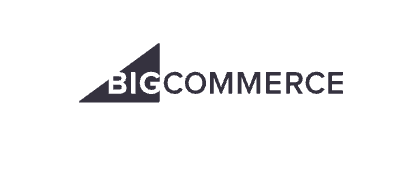The Industries That Blockchain Will Disrupt in Future

Blockchain technology has gained tremendous attention over the past few years, thanks to its revolutionary potential to disrupt various industries. Blockchain is a distributed ledger technology that records transactions in a secure and transparent way, providing a high level of security, transparency, and accountability. As a result, it has the potential to transform industries in ways never before seen. In this article, we will explore nine industries that are likely to be disrupted by blockchain technology in the future.
Blockchain is already well known, as you know. But it’s beginning to challenge business practices, as well. In fact, many industries are finding blockchain technology better than previous methods for completing important tasks. Let’s take a look at the five primary sectors blockchain technology affects.
1. Financial Services Industry

The financial services industry is the most obvious industry that blockchain technology will disrupt. Blockchain can be used to create secure and transparent digital ledgers that can replace traditional financial institutions. This will make financial transactions faster, cheaper, and more secure. In addition, blockchain can eliminate the need for intermediaries, reducing costs and increasing efficiency.
Blockchain, by contrast, disrupts the banking system by providing a peer-to-peer payment system with unparalleled security and low costs. No central authority exists, so you do not have to pay for one. How cool is that? This eliminates the need for a third person to create transactions using cryptocurrencies, like Bitcoin or many others. Your transaction with your friend is recorded in an account that is viewable and modifiable by any cryptocurrency user providing you with true autonomy over the transaction.
Read also: 10 Best Cryptocurrencies to Get or Regret Later
For example, a cryptocurrency application called Abra allows users to send and receive digital cash. Abra enables users to store, transfer, and receive digital money on PCs, tablets, or smartphones. A recipient can withdraw funds through an ATM. Users don’t have to have a bank account!
2. Healthcare Industry
Let’s face reality. There are many issues relating to the storage and delivery of people’s health data today. This information is available from any file in a central database because everything is compiled in one place. If a person asks another for his or her information, it can sometimes take hours to find a file, thereby creating opportunities for information leaks, theft or harm. That’s why blockchain technology is crucially important in this industry.
Blockchain technology eliminates the need for a central authority and enables rapid access to data. Each block is connected to another block and distributed across the blockchain’s nodes, making it infeasible for a hacker to corrupt the data.
Another medical problem involves counterfeit drugs and blockchain technology can help control this problem, too. The problem is that, often, counterfeit medications are hard to distinguish from real ones. Blockchain technology uses supply chain protocols to trace the source of medication, thereby solving this issue.
Allied Healthcare has upgraded its privacy, safety, and interoperability of medical records by using blockchain technology. It has observed its efficiency improve dramatically as a result. We hope other medical services will decentralize their operations as well.
Blockchain technology can revolutionize the healthcare industry by securely storing and sharing medical records, reducing the risk of data breaches, and improving patient outcomes. Patients can have full control over their medical records, and healthcare providers can access their patients’ records quickly and efficiently. Furthermore, blockchain technology can track pharmaceuticals’ supply chain, reducing the risk of counterfeit drugs.
3. Supply Chain Industry
Blockchain technology can track every step of a supply chain, such as when you ordered food and had it delivered. From there, the company could trace the order all the way back to the food production area if the food is determined to be inedible. He can go from the farmer to the producer, to the distributor, to the retailer, and then to you, the buyer. In this way, supply chain management with blockchain provides permanent transparency of transaction details shared by multiple supply chain partners. All transactions are permanent and verifiable, allowing the owner or customer to view each record.
It can be used for any type of verification, such as seafood testing, where it can track the seafood from the ocean to the market. The Pacific Tuna Project uses blockchain technology to manage fishing data, exporting/importing details, and purchasing details to track tuna fishing. This restriction prevents unauthorized fishing.
Using blockchain technology for supply chain management enables you to collect the information you need and make the right decisions every time.
4. Real Estate Industry
The real estate industry is another industry that can benefit from blockchain technology. With blockchain, property titles can be securely recorded and verified, reducing the risk of fraud and increasing transparency in property transactions. Furthermore, blockchain can streamline the process of buying and selling properties, reducing the time and cost of real estate transactions.
Blockchain technology boosts the speed of real estate transfers and eliminates the need for currency payments.
5. Energy Industry
The energy industry is also likely to be disrupted by blockchain technology. With blockchain, energy transactions can be securely recorded and tracked, reducing the risk of fraud and increasing transparency in energy transactions. Furthermore, blockchain can be used to create a peer-to-peer energy trading platform, allowing individuals to buy and sell excess energy directly to each other.
The retail industry is another area that can be transformed by blockchain technology. Blockchain can revolutionize the way retailers interact with customers, allowing them to securely store customer data, track inventory levels, and even process payments. Furthermore, blockchain can make it easier for retailers to comply with privacy regulations by ensuring that customer data is kept secure and private.
6. Gaming Industry
The gaming industry is another industry that can benefit from blockchain technology. With blockchain, gamers can securely buy, sell, and in-game trade assets, reducing the risk of fraud and increasing transparency in gaming transactions. Furthermore, blockchain can be used to create decentralized gaming platforms, giving gamers more control over their gaming experience.
7. Identity Verification Industry
The identity verification industry is another industry that can benefit from blockchain technology. With blockchain, individuals can securely store their personal data and verify their identity, reducing the risk of identity theft and increasing the accuracy of identity verification. Furthermore, blockchain can eliminate the need for third-party identity verification services, reducing costs and increasing efficiency.
8. Music Industry
The music industry is another industry that can benefit from blockchain technology. With blockchain, musicians can securely distribute their music, reducing the risk of piracy and increasing transparency in music transactions. Furthermore, blockchain can be used to create a decentralized music platform, allowing musicians to connect directly with their fans.
9. Voting Industry
The voting industry is another industry that can benefit from blockchain technology. With blockchain, votes can be securely recorded and counted, reducing the risk of fraud and increasing transparency in the voting process. Furthermore, blockchain can eliminate the need for intermediaries in the voting process, reducing costs and increasing efficiency.
10. Insurance
Enabled by blockchain technology’s decentralized platform, insurers can effectively identify false claims and protect against fraud.
11. Logistics Industry
The logistics industry is another area where blockchain technology can be implemented. With blockchain, shipment records can be securely recorded and tracked, reducing the risk of fraud and increasing transparency in the logistics process. Furthermore, blockchain can be used to create a decentralized platform that can help reduce costs and increase efficiency in the logistics industry.
How Is Blockchain Technology Transforming Businesses And Services?

In today’s world, businesses face many challenges. From data security to faster and more secure payments, blockchain technology can transform businesses and services for the better. Below, we’ll outline some of the ways that blockchain is changing the way we do business.
One of the most significant changes that blockchain technology is bringing about is a change in how companies handle data. With blockchain, data can be securely stored on a distributed network instead of in one central location. This eliminates the need for intermediaries, increasing transparency and trust between companies. As a result, businesses can streamline their operations by removing unnecessary steps and processes. For instance, equity crowdfunding platforms can now automate many of the manual steps in offering investors equity investments.
Beyond simply handling data transactions, blockchain technology is also being used to improve transparency and trust in other business transactions. For example, imagine being able to track your shipment from start to finish – from tracking numbers all the way through to delivery – on a blockchain platform? This would eliminate any chance of fraud or mistakes along the way and would provide greater transparency for both you as a consumer and businesses involved in your supply chain.
In addition to streamlining business operations, blockchain technology has an impact on financial services by removing intermediaries such as banks or credit card companies. By doing so, this technology could lead to more efficient and secure payments systems that are accessible anywhere in the world. Additionally, digital tokens could be used as fast and secure methods of payment across various ecosystems such as hospitality or retail industries.
Last but not least, patient healthcare records can be securely stored on a blockchain platform for future reference or retrieval by authorized individuals. By doing so, patients will have increased control over their own medical data while providers will have access to vital records without having them stored centrally somewhere vulnerable like an insurance company’s computers!
Overall, it’s clear that Blockchain technology has huge potential for transforming businesses across many different sectors – from finance and retail through healthcare and even marketing!
The Business Benefits Of The Blockchain Revolution
The blockchain revolution is happening, and businesses are starting to take notice. This technology has the potential to revolutionize traditional business operations in several ways. Using blockchain technology, businesses can improve trust and transparency between parties, create new ways of doing business, and reduce costs associated with traditional operations. In this section, we’ll look at some of the key benefits businesses can expect from implementing blockchain solutions.
To start off, let’s look at how blockchain can help to improve trust and transparency between parties. By creating an immutable record of transactions between parties, blockchain helps to create a more transparent system. This is especially important in industries with a lot of fraud or collusion between parties. As a result, businesses can reduce risk exposure while increasing trust among their customers or partners.
Another benefit of using blockchain technology is its ability to create new business ways. For example, imagine a scenario where two companies are trying to negotiate a deal involving goods and services. With traditional business operations, this negotiation would be time-consuming and complex, involving many back-and-forth emails and phone negotiations. With blockchain technology though, this negotiation could be simplified down into an automated process that is both secure and transparent. Plus, since the data on the chain is tamper-proofed (meaning no one other than authorized participants can change it), there’s no chance for fraud or collusion to take place during the negotiation process!
Finally, blockchain has the potential to improve trust and transparency across all industries. In particular, industries that are susceptible to fraud or collusion (such as finance or healthcare) will see the most dramatic benefits from this technology. By creating an immutable record of transactions that cannot be changed without permission from all involved parties, businesses can build trust among their customers/partners in a way that was not possible before. This increased level of trust will ultimately lead to greater efficiency within these industries – making them more competitive in today’s economy!
While there are many benefits associated with implementing blockchain solutions into your business operation,. make sure you have researched all applicable regulations before taking any actions! There are significant legal implications attached with using this cutting edge technology – make sure you understand them before proceeding!
Read also: Key Benefits of Using An LMS For Employee Training
To Sum Up
In conclusion, blockchain technology has the potential to revolutionize many industries, from finance and banking to healthcare and supply chain management. Nine industries in particular are set to be disrupted by blockchain. With improved security, faster transactions, better transparency, and increased trust between companies, businesses can benefit from blockchain technology in various ways. To take advantage of these benefits, businesses must be willing to embrace this innovative new technology. To start unlocking the potential of blockchain technology today, contact a trusted blockchain provider!






